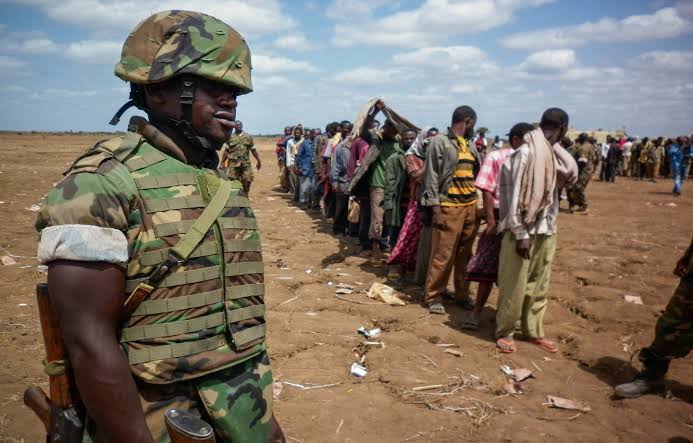Facebook Twitter (X) Instagram Somali Magazine - People's Magazine
The Islamic State (IS) group has seen a significant increase in its presence in Somalia due to an influx of foreign fighters, according to a recent report by the United Nations (U.N.) Sanctions Monitoring Team for Somalia. This development has expanded IS’s operational capacity and influence, positioning it as a serious threat in the region.
Expansion Fueled by Foreign Fighters
The U.N. report estimates that IS-Somalia’s membership has surged to 600-700 fighters, doubling its previous strength. The newcomers hail from countries such as Ethiopia, Morocco, Sudan, Syria, Tanzania, and Yemen, with most entering Somalia through its northern Puntland state.
Somalia’s Bosaso port on the Gulf of Aden has become a key transit point for these fighters and the equipment fueling IS’s expansion. Located in Puntland, Bosaso serves as a hub for both IS and its rival, al-Shabaab, which is affiliated with al-Qaida.
“Despite being relatively limited inside Somalia compared to al-Shabaab, IS-Somalia is punching above its weight internationally,” analysts Caleb Weiss and Lucas Webber from the Combating Terrorism Center at West Point noted.
Territorial Gains and Challenges
IS-Somalia has secured footholds in the Bari region’s districts of Balidhidin, Hunbays, Iskushuban, and Qandala. These areas lie in the northernmost part of Somalia, across the Gulf of Aden from Yemen. However, the group’s small size and remote bases hinder its ability to completely uproot al-Shabaab’s financial and operational networks.
“IS’s small size and basing in remote areas will continue to prevent it from exerting the level of physical control necessary to uproot al-Shabaab,” said analyst Liam Karr from the Institute for the Study of War.
Key Funding and Recruitment Efforts
Bosaso port has emerged as a critical source of funding for IS-Somalia, generating hundreds of thousands of dollars monthly through extortion operations. These funds not only support IS activities within Somalia but also assist terrorist groups in the Democratic Republic of the Congo and Mozambique.
To bolster its ranks further, IS’s media arm has been producing propaganda videos in Ethiopia’s Amharic and Oromo languages, aiming to attract recruits from the region.
Growing Global Prominence
IS-Somalia has become a pivotal branch of the broader Islamic State organization, contributing significantly to its global operations. The U.N. report highlights its importance, noting its role in funding and strategizing for IS’s activities in Africa.
The group’s expansion coincides with growing threats beyond Somalia’s borders. Foreign fighters, often ideologically hardened and disconnected from local grievances, may use Somalia as a base for launching larger-scale international attacks.
“An influx of foreign fighters increases the risk of external attack aims. Many of these fighters demonstrate interest in returning to their countries of origin to organize attack plots,” Karr emphasized.
Recent Setbacks for IS-Somalia
Despite its growth, IS-Somalia faces challenges from Puntland authorities and rival factions. In August, authorities intercepted five kamikaze drones suspected to be destined for IS or al-Shabaab operatives. The seizure was hailed as a significant blow to terrorist activities in the region.
Implications for Regional Security
The presence of foreign fighters in Somalia has heightened concerns about the spillover of terrorism into neighboring countries. Analysts warn that this influx could destabilize the broader Horn of Africa region, threatening regional and global security.
As IS-Somalia continues to grow, counterterrorism efforts by Somali federal forces, Puntland authorities, and international allies will be critical in curbing its expansion and mitigating its impact on regional stability.
The rise of IS-Somalia underscores the complexities of combating terrorism in fragile states and highlights the need for coordinated efforts to address the root causes of extremism and disrupt the flow of foreign fighters.

